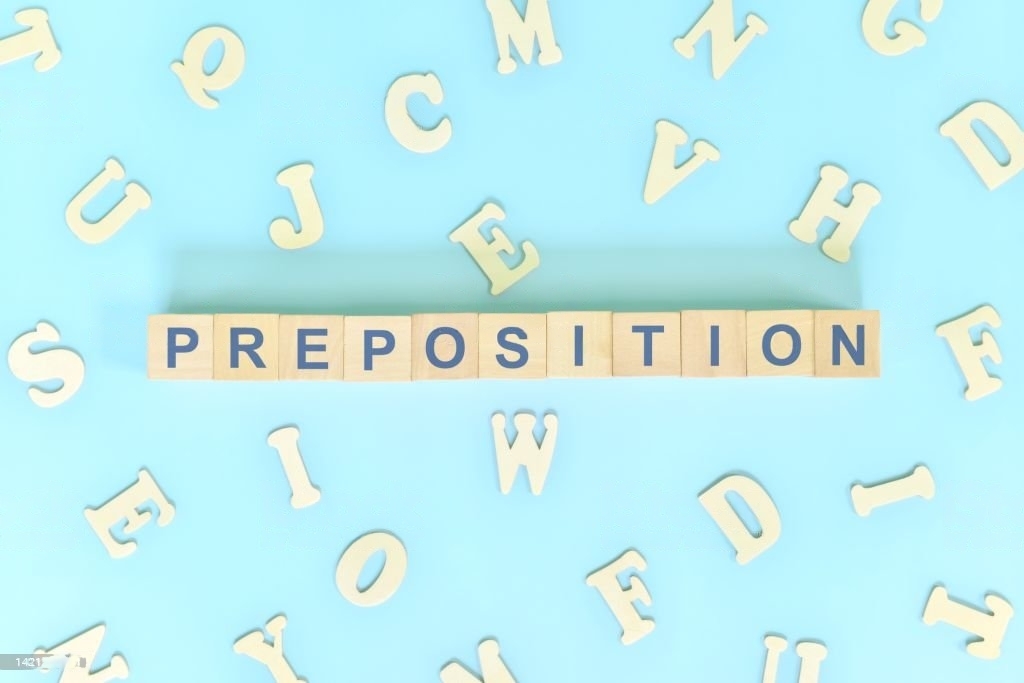Are you looking to become an expert French speaker? Have you ever heard of the language of Verlan? Verlan is a unique form of slang used in France that has been around for centuries. It’s a great way to learn new words, practice your pronunciation, and impress friends with your knowledge of French culture. In this article, we’ll explore the benefits of learning Verlan, common verlan words and their meanings, and examples of how to use verlan in everyday life. So whether you’re a beginner or an advanced French speaker, let’s get started on mastering the language of Verlan!
What is Verlan?
Verlan is an old French slang that has been around for centuries and is still used by many native French speakers today. It’s a form of expression that adds a unique flair to the language, making it sound more exciting and interesting than regular French. The main idea behind Verlan is to take words or phrases and reverse them so that their pronunciation becomes unfamiliar yet still recognizable. For instance, the phrase “acheter au marché” (to buy at the market) becomes “archeté au chamé” in verlan. Additionally, you can also create your own word combinations from existing words such as “femme” (woman) and “homme” (man), resulting in the new word “meuf” which means girl or woman.
Verlan is especially popular among young people who use it to communicate with one another in an informal way. It can also be found in hip-hop music and other forms of entertainment like television shows and movies. And with the influx of North African, Arabic immigrants and people of African descent into France over the past few decades, many of these cultures have adopted verlan as a common language they use amongst themselves as well as when speaking to native French speakers.
In conclusion, Verlan is a great way to add some fun to your French conversations while improving your target language skills at the same time! Whether you’re conversing with friends or trying to ask a police officer for directions, learning verlan can help make your communication smoother and more enjoyable. So if you’re looking for a creative way to practice your French vocabulary – look no further than Verlan!
The Benefits of Learning Verlan
Verlan is a great way to up your French game and keep conversations with native speakers flowing! Not only does it give you an edge on the language, but it also helps you understand what other people are saying in their own unique slang. Plus, it’s super fun to learn – think of it like solving a puzzle with words. Plus, once you learn verlan, you can even create your own expressions by combining existing words to make something new and totally fresh.
It’s also an incredible way to get closer to the culture and people of France. You may not be able to understand all the lyrics of French hip-hop songs but if you know some verlan then suddenly you can start connecting with the music in a whole new way. And when spending time with French friends or family, learning verlan will help break down any language barriers that pop up.
So don’t miss out – give Verlan a try and see for yourself why so many people love it! It might take some practice but eventually it’ll become second nature. Who knows – maybe soon enough you’ll be speaking like an old-timey Parisian!
Common Verlan Words and their Meanings
Verlan is the French slang term for reversing syllables or words. You’ll hear it all over France, particularly in the everyday conversations of young people and those of African descent. It’s also a great way to expand your French vocabulary with some fun expressions! Here are 20 common verlan words that you should know:
1. Écouter – To listen – Reoucte
2. Ami – Friend – Mifa
3. Police – Cop – Ecopol
4. Acheter – To buy – Tehcaer
5. Marché – Market – Chérma
6. Mari – Husband/wife – Imra
7. Oui – Yes – Ieu
8. Jeune– Young – Neuje
9. Femme– Woman – Meuf
10. Très bien– Very good – Bientrè
11. Bonjour– Hi/Hello – Roujbon
12. Ce soir– Tonight – Soirc’e
13. Grand-Parent– Grandparent – Tirpangd
14 .Trop tard– Too late – Tardtrop
15 .Chercher– To look for – Rehcerc’h
16 .Fille– Girl – Lellef
17 .Garer– To park/leave somewhere- Regar
18 .Manger- Eat- Gneram
19 .Dormir- Sleep- Rimsod
20 .Organiser- Organize- Erizegno
Verlan is a great way to have fun while learning French, and with the above words you can quickly boost your vocabulary! The next section will focus on Acheter – Rechat, so stay tuned to see what this word has to offer!
Acheter – Rechat
Acheter – Rechat is the verlan form of the French word “acheter,” which means “to buy.” It’s used regularly in everyday life, particularly by younger French speakers and those of North African descent. You’ll hear it all over Paris, especially when you’re at the market or shopping for something special. It’s also a great way to sound more like a native speaker when chatting with your French friends!
In addition to its use in everyday language, Acheter – Rechat is also popular in French hip-hop and rap music. Rappers often use it as part of their lyrics to add an extra layer of expression and authenticity to their songs. It’s also commonly used by Arabic immigrants who are trying to learn French as their target language. By using Acheter – Rechat they are able to better understand how the French language works and pick up new words quickly.
Whether you’re trying to learn more about French slang or just want to sound like a true Parisian, learning how to say Acheter – Rechat is essential. So don’t forget this important phrase and start using it in your everyday lives!
Faire – Refaire
Faire – Refaire is the verlan version of the French verb “faire,” which means “to do” or “to make.” This popular slang expression is often used by younger generations in France, especially when they’re trying to sound cool. It’s also common among French-speakers from North African countries, who use it to express their identity and show off their linguistic skills.
This fun form of expression can be heard all over France, particularly in the streets and cafés of Paris. In addition to everyday conversations, Faire – Refaire is also popular in rap music and other forms of hip-hop culture. Rappers often use this expression in their lyrics, making them sound more natural and authentic.
So if you want to sound like a native speaker and learn some new French slang expressions, start using Faire – Refaire today! Whether you’re chatting with friends at a café or just trying to impress someone, this phrase will definitely come in handy. You’ll soon be speaking like a true Parisian – bonne chance!
Rentrer – Renter
Rentrer – Renter is the verlan version of the French verb “rentrer,” which means “to enter” or “to go in.” This popular slang expression is widely used by younger generations in France and other French-speaking countries as a way to sound cool and express their identity. It can be heard in cafés and on the streets of Paris, as well as in rap music and other forms of hip-hop culture.
Rentrer – Renter has become so popular that it’s even being used by native speakers in everyday conversations. So if you want to learn some new French slang expressions and really impress your French friends, start using Rentrer – Renter today! Whether you’re chatting with pals at a café or just trying to fit in like a local, this expression will come in handy. Plus, it’ll make you sound like a true Parisian – bonne chance!
Parler – Perler
Parler – Perler is the verlan version of the French verb “parler”, which means “to speak”. It’s a popular slang expression that’s widely used by young people in France, especially those from African descent or with North African or Arabic immigrant backgrounds. You can hear it in the hip-hop and rap scenes, as well as in everyday conversations.
The usage of Parler – Perler has been growing lately, making it an essential word for anyone who wants to sound cool and fit in like a true French speaker. From cafés to blogs, this expression is everywhere! Not only will using Parler – Perler make your French sound more natural, but it’ll also let people know that you’re up-to-date with the latest trends in language.
Venir – Nevenir
Venir – Nevenir is the verlan version of the French verb “venir”, which means “to come”. This expression very popular among French people and foreigners alike! It’s a great way to show off your knowledge of French vocabulary and fit into conversations like a true French speaker!
You can use Venir – Nevenir anytime you want to express that you’re coming somewhere or that something is happening soon. For example, if you’re meeting up with friends after work, you might say “Nevenez pas tard!” (Don’t come late!). Or if you’re going out for dinner and someone asks when you’ll be ready, simply reply “Je nevien dans 10 minutes!” (I’ll be there in 10 minutes!).
Avoir – Voir
Avoir – Voir is the verlan version of the French verb “avoir”, which means “to have”. It’s often used by French speakers all over the world and it’s a great way to sound like a native speaker. Whether you’re talking about having money, owning something, or just expressing possession in general, this verlan expression is perfect for any situation.
For example, if you want to tell someone that you own a car, you can simply say “J’vois une voiture!” (I have a car!). Or if your friend asks if you have enough money to go out for dinner, reply with “Ouais j’vois assez pour ça” .(Yeah I have enough for that). You can even use Avoir – Voir when talking about people. If someone asks if you know someone from school you can say “J’vois un gars de la fac” (I know a guy from college).
Poser – Seposer
Poser – Seposer is the verlan version of the French verb “poser”, which means “to pose”. This expression is one of the most popular slang words used by native French speakers, especially in everyday conversations. Whether you’re talking about taking a photo or striking a pose for a selfie, this verlan expression is perfect for any situation.
For example, if you want to take a quick picture with your friends, all you have to do is say “On sepose?” (Let’s take a pic!). Or if someone wants to show off their new look, they can simply say “J’me suis bien sepose là-bas!” (I posed really well there!). You can even use Poser – Seposer when talking about people; if someone mentions they saw someone posing in town, reply with “Ah ouais j’imagine qu’il/elle s’est bien sepose!” (Oh yeah I bet he/she posed really well!).
Manger – Gemer
Manger – Gemer is the verlan version of the French verb “manger”, which means “to eat”. You may have heard this expression being thrown around in casual conversations while hanging out with your French friends or listening to a French hip-hop song. Manger – Gemer is one of the most commonly used slang words by native speakers and it can be used in many different situations.
You can use Manger – Gemer when talking about food such as when you’re asking someone what they ate for lunch or dinner. For example, if your friend tells you they had pizza for lunch, you can reply with “Ah ouais t’as gemé ça?” (Oh yeah did you eat that?). Or if someone mentions they bought something at the market, you could say “T’as gemé quelque chose au marché?” (Did you eat something at the market?).
In addition to food, the French also use Manger – Gemer when talking about people. If someone says they saw a police officer walking down the street, you could reply with “Ah ouais il/elle a bien gemé ce mec!” (Oh yeah he/she really ate that guy up!).
Oui – Ouai
Oui – Ouai is one of the most iconic verlan expressions in the French language. It’s a must for any true French speaker! It can be used in everyday lives by both native speakers and those who are trying to learn the language. It’s an expression that can be used to answer almost any question. For example “Do you want to go out tonight?” to “Are you feeling ok?” In other words, if you need a quick and easy response, Oui – Ouai is your go-to phrase.
It’s also important to mention that Oui – Ouai has a certain level of coolness attached to it. Using this slang expression makes you sound more relaxed and less formal than if you were simply saying “oui” (yes). So make sure to add some flavor to your conversations by incorporating Oui – Ouai into your everyday speech. Trust us, your friends will appreciate it!
Travailler – Lerevailer
Travailler – Lerevailer is the perfect verlan expression to use when you’re trying to describe working hard. This slang phrase is often used among French hip-hop artists, and it’s usually accompanied by some type of hand gesture. The literal translation of Travailler – Lerevailer means “to work again and again,”. But it also implies that you’re working very hard and pushing your limits.
At the end of the day, don’t be afraid to let loose with your friends and family – after all, life’s too short not to have some fun!
You can have a look at this fun post by Fluentu on Verlan. Check out my next blog on 15 GIGGLE WORTHY FRENCH IDIOMS TO ADD TO YOUR FRENCH LANGUAGE REPERTOIRE!
My works
P.S. Are French verb conjugations nightmarishly hard for you? Or you are someone who like to learn them and practice to perfect your French? Regardless, I have written this book to help fellow learners own French conjugations like a boss!

Here I have:
- Curated a list of 100 most common French verbs with their English meanings
- 10 conjugation forms for each verb
- 200 exercises for you to practice the conjugations you will learn
- 100 beautiful French idioms to impress your crowd.
I really hope you find this book useful and use it whenever you have to quickly revise a bit of verb conjugations

A French Bullet Agenda to help you continue your passion of the language!
I have also created a bilingual bullet agenda to help you with your linguistic journey:). You will be able to jot down:
- Important events
- Monthly weekly objectives
- Practice gratitude
- Your thoughts and priorities
- And even practice French verb conjugations 🙂
Below is a glimpse of the journal interior. I really hope it helps you in your day-to-day life from both the language and personal perspectives! 🙂








Pingback: 15 giggle worthy French idioms to add to your French language repertoire! - Speak French like a French!
Pingback: List of funny French argot spoken among Francophones - Speak French like a French!